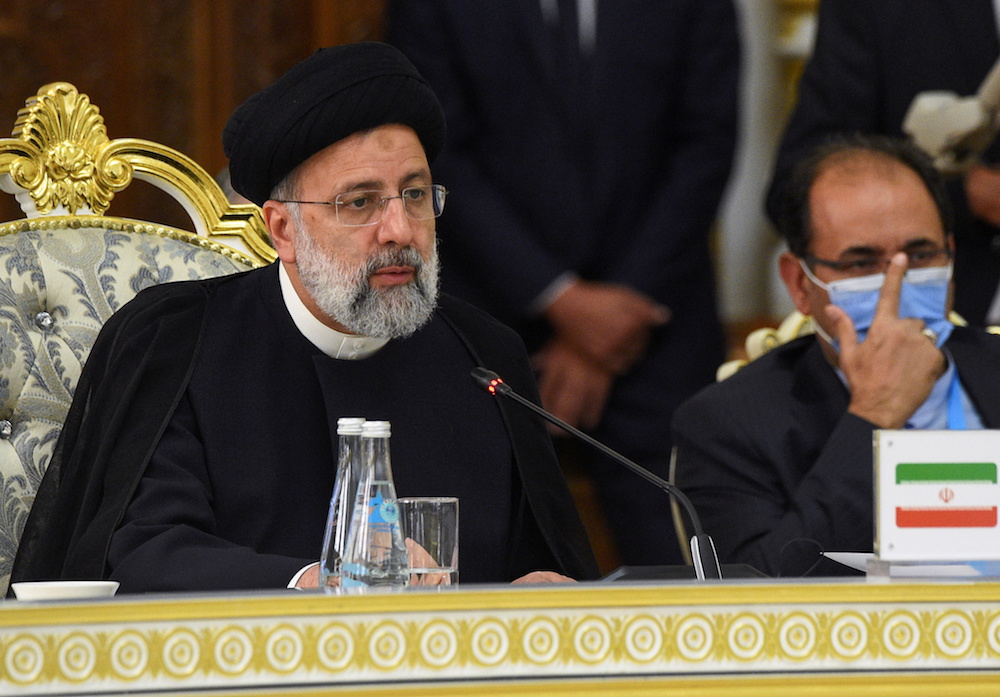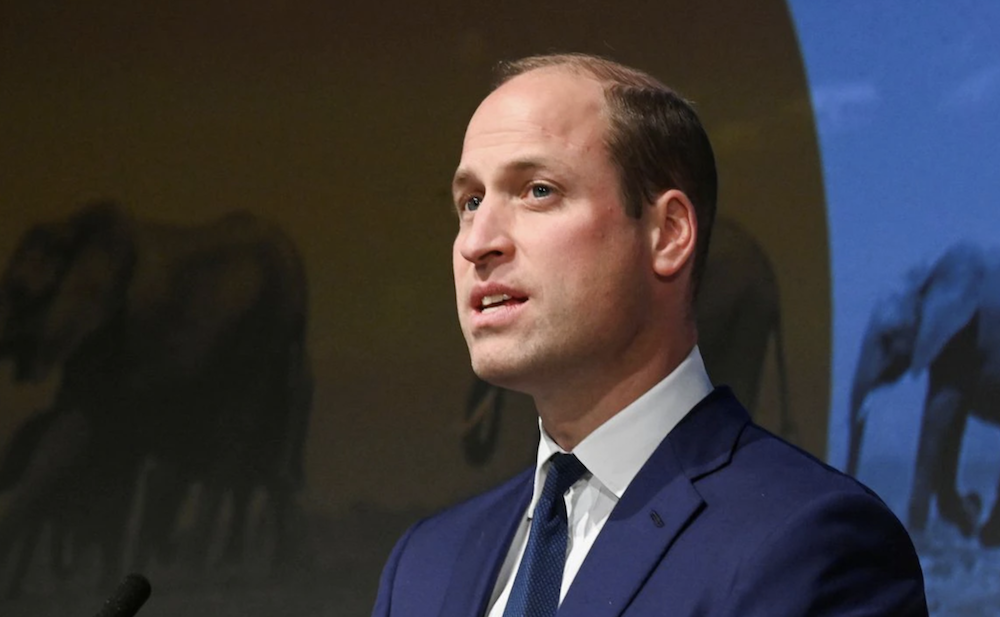Gulf Arab embrace of Jewish minority reflected in Bahrain cemetery-restoration project
DUBAI: For more than a century, a small cemetery in the heart of Manama has served as the final resting place for members of Bahrain’s tiny Jewish community, which is the most established of its kind in the Gulf Cooperation Council area.
Located a short distance from The House of Ten Commandments, the oldest synagogue in the Gulf, the cemetery receives fewer visitors these days than the nearby Christian graveyard at St Christopher’s Cathedral. But for Jews in Bahrain it remains a cherished part of their heritage.
Thanks to a new donor-funded initiative, efforts have begun to restore the site, which is recognized as the only Jewish cemetery in the Gulf. The project, launched by the Association of Gulf Jewish Communities on Jan. 16 to coincide with the Jewish holiday of Tu B’Shevat, aims to finance renovation and maintenance work at the site. The AGJC was founded in 2021 as a network of communities to develop Jewish life in the GCC area.
“For more than 100 years, our family members have been buried in the Jewish cemetery in Bahrain,” Ebrahim Dawood Nonoo — president of the AGJC, chairman of the Board of Trustees of The House of Ten Commandments and head of Bahrain’s Jewish community — told Arab News.
“One component of our community planning is ensuring that our cemetery is properly maintained for generations to come. We are very thankful that the AGJC chose this for its Tu B’Shevat project.”
As part of the renovation project, weathered headstones are being cleaned and trees planted.
“We are planting trees in the Jewish cemetery of Bahrain, which is akin to bringing life back to those that have lived in the beautiful community in Bahrain for centuries and made their resting place in Bahrain for eternity,” Rabbi Elie Abadie, the most senior Jewish cleric in the GCC area, told Arab News.
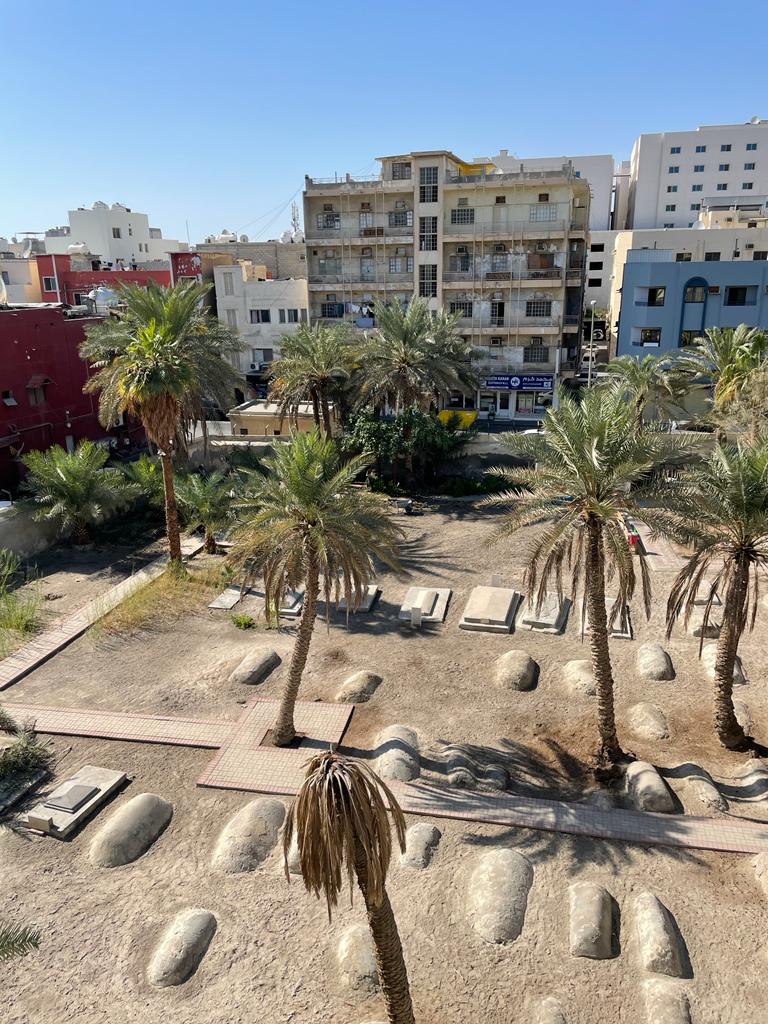
“Trees offer life; they provide shade, oxygen and nutrients. We are planting trees in the cemetery, the final resting place to the spirits, as a revival to them. Trees take time to grow so we are not growing them for this generation, but for the upcoming one as our forefathers did for us.”
The readiness of Bahrain to embrace its Jewish minority and celebrate its heritage has made it a trailblazer for the region. The island kingdom’s former ambassador to the US, Houda Nonoo, is a prominent member of the Jewish community in the Gulf.
In June 2019, Bahrain hosted the “Peace to Prosperity” workshop in Manama, during which US President Donald Trump’s administration presented the economic aspects of his plan for peace between Israel and Palestine.
In August the following year, Bahrain and the UAE issued a joint declaration with Israel called the Abraham Accords, which led to the normalization of relations between the two Arab countries and Israel. The agreements also paved the way for warmer ties between Israel and Oman, Morocco and Sudan.
Israel considers itself a “Jewish and democratic state,” while Islam is the official religion of the UAE and Bahrain. Abraham Accords was chosen as the name for the agreement to signify the shared origin of belief between Judaism and Islam, both of which are Abrahamic religions that strictly espouse the monotheistic worship of the God of Abraham.
Since the signing of the accords, the UAE and Bahrain have invested a great deal in their bilateral relationships with Israel, and encouraged the celebration of Jewish history and heritage in the region.
FASTFACTS
* The Association of Gulf Jewish Communities is an umbrella organization for communities of Jews in the GCC area.
* Each of the communities is independent but they share a common goal: To see Jewish life flourish in the region.
* The AGJC oversees services such as Jewish court the Beth Din of Arabia, the Arabian Kosher Certification Agency and life cycle events.
At the same time, Gulf leaders have enhanced their political ties with Israel. Late last year, for example, Naftali Bennett, the Israeli prime minister, visited the UAE where he met Sheikh Mohammed bin Zayed, Abu Dhabi’s crown prince.
Bennett also met Bahrain’s Crown Prince Salman bin Hamad Al-Khalifa on the sidelines of the COP26 climate summit in Glasgow, Scotland, in November.
The modern Jewish community in Bahrain was established in the 1880s when hundreds of Jews arrived from Iraq and Iran in search of a better life. Many settled in the Al-Hatab neighborhood of Manama, where they initially worked in the clothing industry.
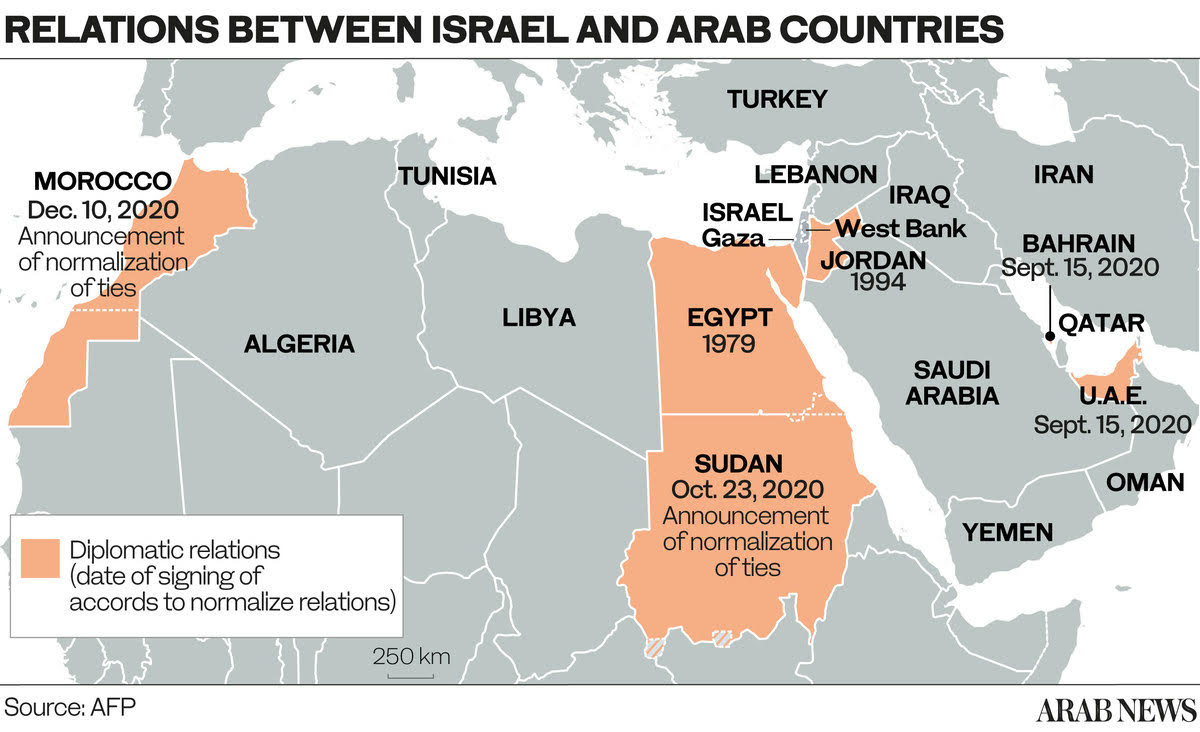
In 1935, as the community began to thrive, an Iranian immigrant named Shimon Cohen established a synagogue. However, the building was destroyed in 1947 during disturbances linked to the Arab-Israeli conflict.
Until the Abraham Accords were formally signed on Sept. 15, 2020, in Washington, D.C, Bahrain’s remaining Jewish community of about 50 people practiced their faith largely behind closed doors. Since then, however, their synagogue has been renovated at a cost of 60,000 Bahraini dinars ($160,000) and religious services are once again taking place openly.
Bahrain is not the only regional state that hosts a Jewish minority. About 1,000 Jews, all of them expatriates, are thought to live in the UAE. As trade ties with Israel are enhanced and Israeli tourists continue to flock to the Emirates, that number is expected to increase, in parallel with economic, technological, cultural and security cooperation.
“I went to Dubai twice last year and I would like to go to Bahrain,” said Yossi Levy, 41, an Israeli who lives in Jerusalem. “We felt safe and so did all my friends. I’m interested in the heritage aspect — and the shopping is out of this world.”
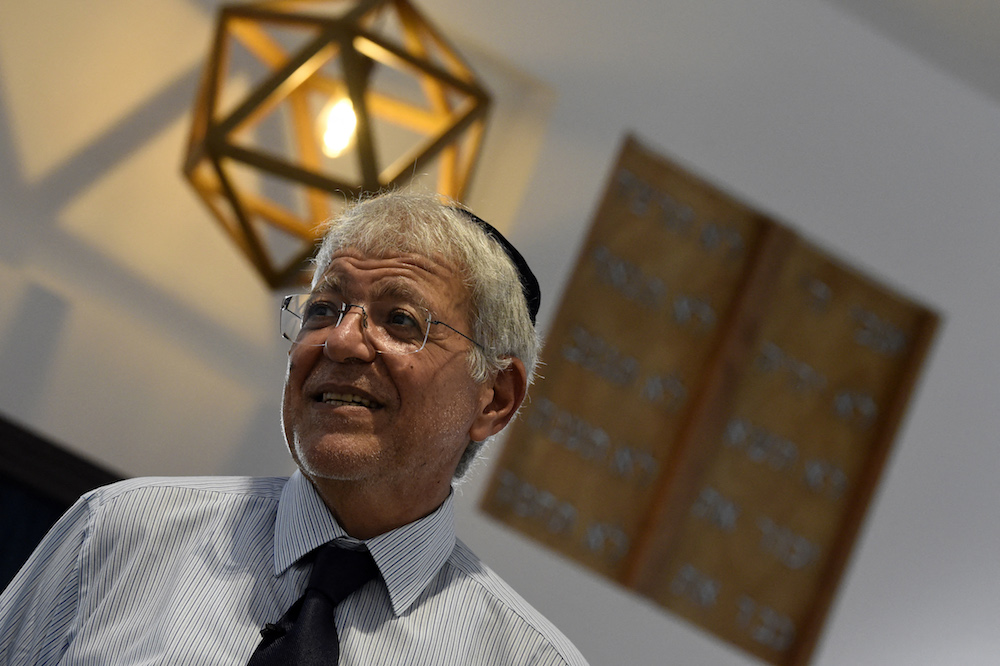
Israeli tour groups have become more common in Dubai in the past two years. And until COVID-19 restrictions put the brakes on international travel, the city’s hotels were serving a growing Israeli clientele.
According to the Israel’s foreign ministry, about 200,000 Israelis have visited the UAE since relations between the two countries were normalized in 2020.
“There will be many more when COVID-19 finally disappears,” said Levy. “I hope we can develop the heritage links. It’s important.”
In most parts of the Arab world, however, Jewish populations are on the brink of vanishing. Iraq, once home to one of the world’s oldest Jewish communities, now hosts only four members of the faith. Last year, their patriarch, Dhafer Eliyahu, died.
Baghdad has one a semi-functional synagogue but it does not have a rabbi and no services have been held there since before the 2003 US-led invasion. An estimated 220,000 Jews of Iraqi descent now live in Israel.
Both Turkey and Iran have small Jewish communities, while Lebanon, Syria and Egypt are thought to have only a few dozen Jewish residents between them. It is estimated that Yemeni Jews number in the low hundreds, at most.
Against this bleak backdrop, Bahrain is seen by many in the Jewish community as a particularly successful example of peaceful interfaith coexistence.
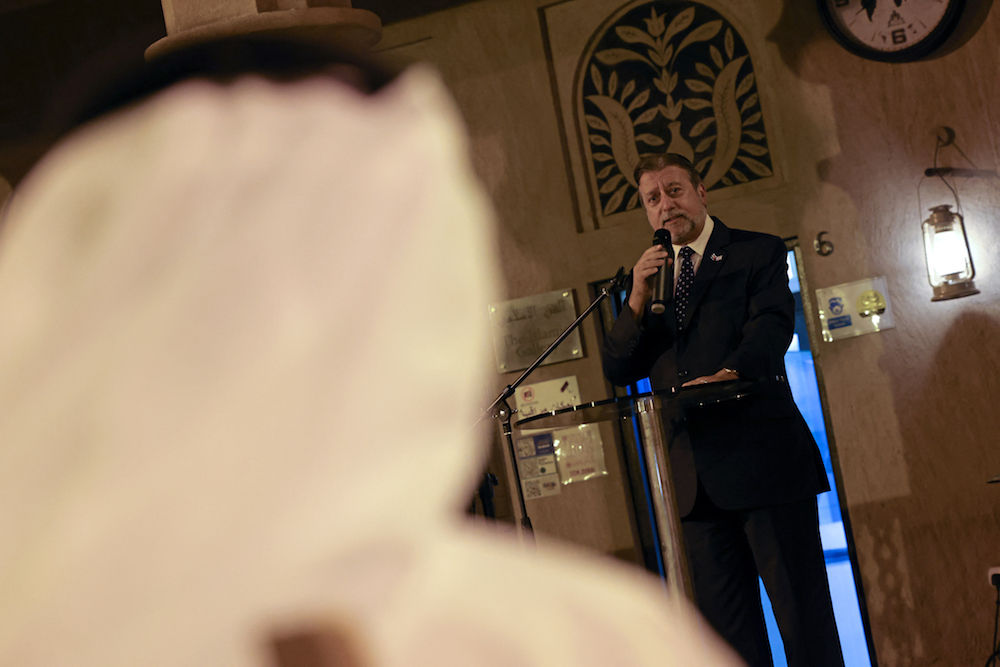
“The revival of the Jewish community in Bahrain and the development of one in the UAE is just beautiful,” Rabbi Abadie told Arab News. “It is nostalgic, after decades of the absence of Jewish presence.”
Abdullah Issa, a 39-year-old Muslim and Bahraini national, said his country has set a strong example that others should follow.
“Bahrain and other GCC countries have proven to the world that coexistence and the values of human fraternity as a whole can be achieved through will and resolve,” he told Arab News.
“Although changing perceptions and attitudes can be difficult, by the simple gesture of planting a tree both the government and people of Bahrain showcase that coexistence and demonstrate that human fraternity must be achieved.”
AGJC president Ebrahim Nonoo said he is thrilled to welcome Muslim visitors to the House of Ten Commandments, which is helping to advance the goal of cultural dialogue.
“It’s all very heartwarming,” he told Arab News. “You have Muslims coming into the synagogue all the time. They see the Ten Commandments, which are also written in Arabic, and they say it’s like in the Qur’an. The similarities make them comfortable.
“The situation in Bahrain is unique. It’s something people have a lot to learn from. The coexistence here is just wonderful.”
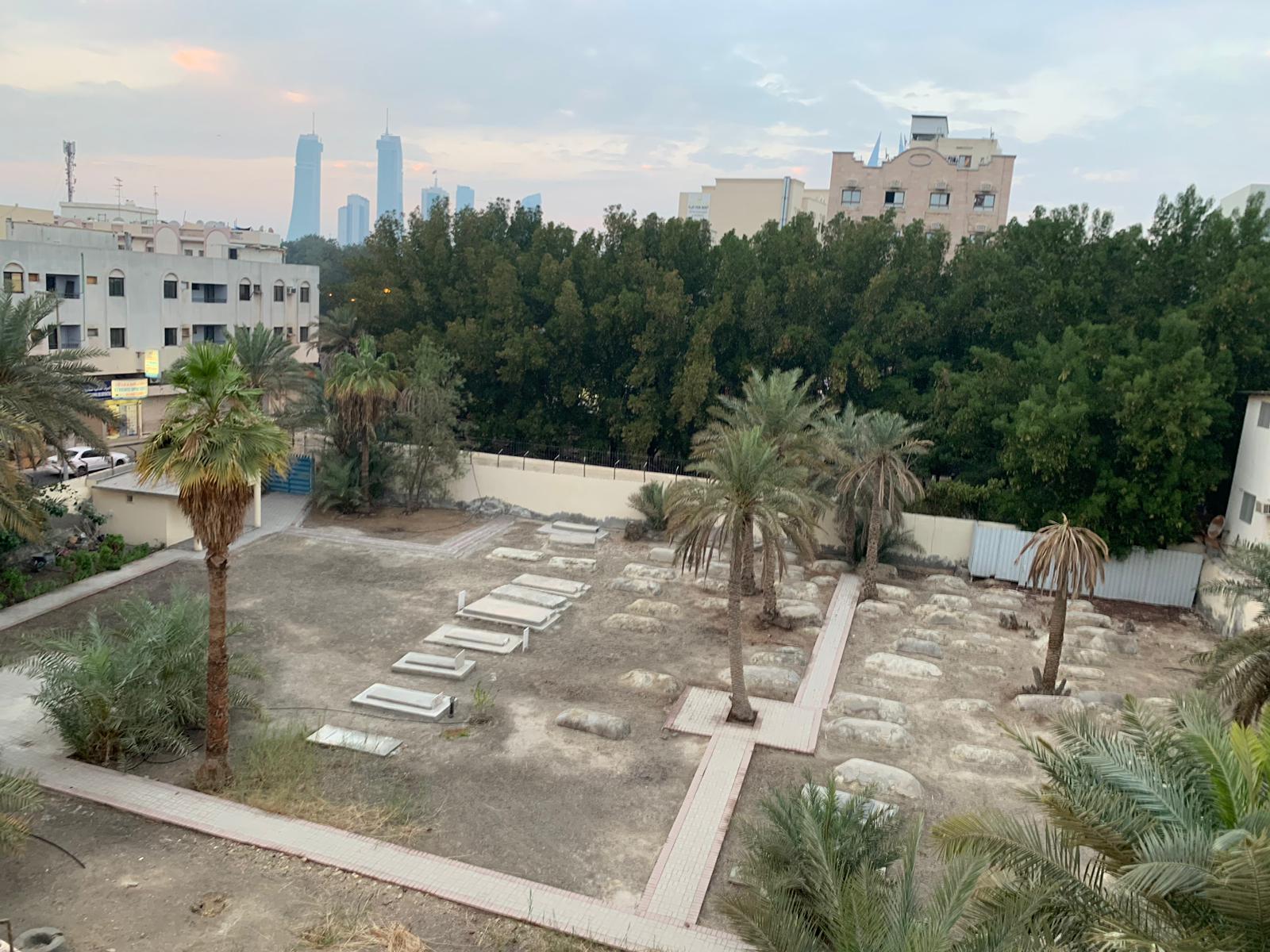
First Jewish wedding held in Bahrain in 52 yearsINTERVIEW: The social, cultural impact of the Abraham Accords is beautiful, says Ariella Steinreich
